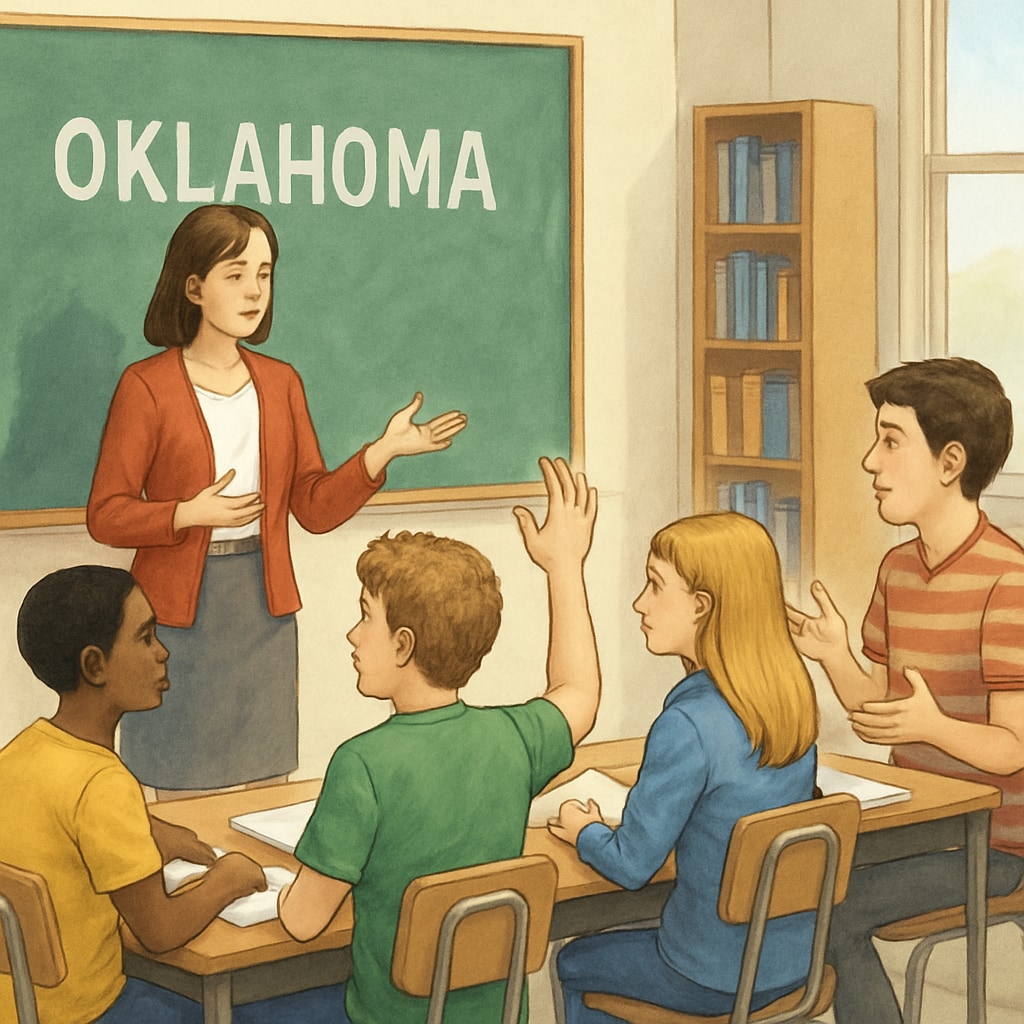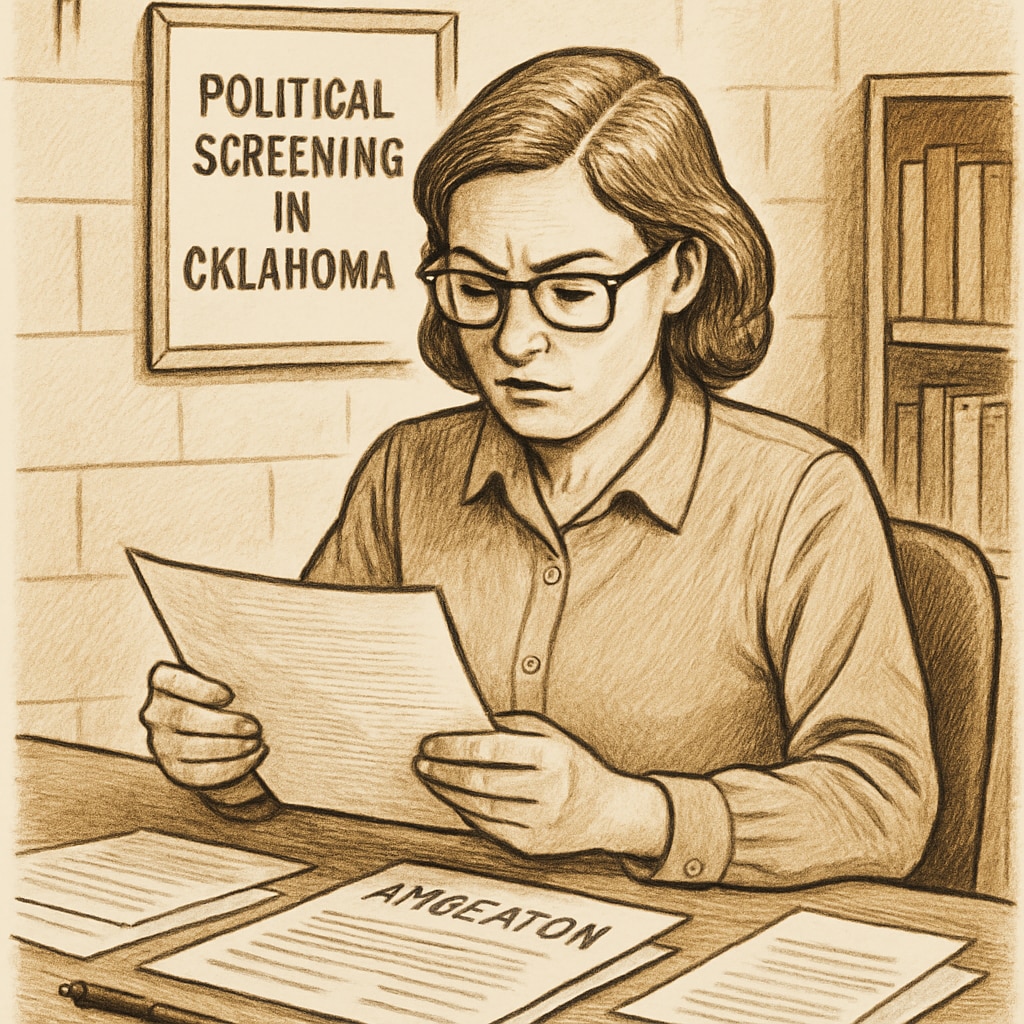Oklahoma has recently implemented a controversial political test for out-of-state teacher applicants. The policy, which aims to prevent “radical leftist ideologies” from infiltrating K-12 classrooms, has ignited intense debates surrounding education neutrality, teacher autonomy, and the broader implications of political interference in education. Critics argue that this move could undermine professional teaching standards and restrict diverse perspectives, while proponents believe it is necessary to protect traditional values in the state’s education system.

Political Tests in Teacher Applications: A Question of Neutrality
The introduction of political screening for teachers raises critical questions about the role of education in fostering neutrality and open dialogue. Oklahoma’s policy explicitly targets educators from other states who might bring “radical leftist ideologies” into local schools. While the state government claims the measure will protect students from biased or divisive content, opponents are concerned about the vagueness of terms like “radical” and “leftist.” Such subjective language opens the door to potential discrimination and exclusion of qualified teachers based on their personal beliefs or affiliations.
Historical examples of ideological control in education underscore the risks of politicizing teacher hiring. For instance, during the McCarthy era, educators were dismissed for perceived communist sympathies, leading to widespread fear and conformity. Oklahoma’s policy may echo similar concerns, potentially stifling academic freedom and diversity of thought.

The Impact on K-12 Education and Teacher Autonomy
Oklahoma’s decision to implement political tests could significantly impact the state’s K-12 education ecosystem. Teachers play a pivotal role in shaping young minds, and their ability to present diverse perspectives is central to fostering critical thinking. By screening out educators based on perceived political ideologies, the state risks homogenizing classroom discussions and limiting students’ exposure to differing viewpoints.
Furthermore, this policy may deter highly qualified educators from applying to Oklahoma schools, exacerbating existing teacher shortages. According to a report on education trends, many states are already struggling to recruit and retain skilled teachers, particularly in rural areas. Adding political requirements to the hiring process could make Oklahoma less attractive to out-of-state candidates, further straining the system.
Balancing Values and Freedom in Education Policy
While proponents of Oklahoma’s political tests argue that the policy reflects local values and safeguards students from divisive ideologies, balancing these priorities with freedom and diversity remains challenging. Education is inherently a space for exploration, debate, and growth. Policies that prioritize ideological conformity over intellectual development risk creating an environment of censorship and stagnation.
To navigate this delicate balance, policymakers must establish clear, objective criteria for evaluating teacher applicants, rather than relying on subjective or politically charged language. In addition, fostering open communication between educators, parents, and administrators can help ensure that schools remain spaces for learning rather than ideological battlegrounds.
Ultimately, the debate over political tests in teacher applications highlights broader tensions between preserving community values and upholding professional standards. As Oklahoma moves forward with its policy, the state must carefully consider its long-term effects on educational freedom, teacher recruitment, and student development.
Readability guidance: Short paragraphs and active voice enhance clarity. Lists and external references, like education policy on Wikipedia, provide context while maintaining an engaging tone.


